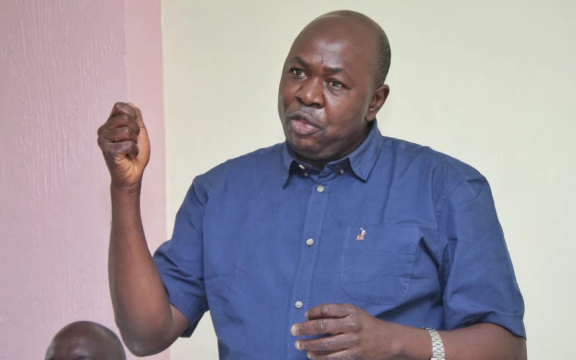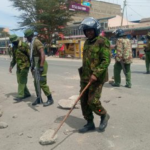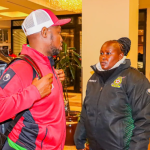Charles Owino, the chairperson of the Council of the Kenya Institute of Mass Communication (KIMC), has stated that officers from the Directorate of Criminal Investigations (DCI) cannot operate in uniform, as it contradicts their standard procedures.
This comment comes in response to a High Court order instructing officers to refrain from concealing their identities during demonstrations.
Owino, a former Police Spokesperson, explained that the use of unmarked vehicles and the absence of uniforms are part of the DCI’s operational methods, suggesting that altering this practice may not be practical.
“You cannot stop the DCI from operating the way they operate. You cannot ask them to put on uniform when they are used to operate in civilian clothes,” he said speaking on Citizen TV’s Daybreak show.
Owino noted that the DCI officers who always concealed their faces, walked with deadly firearms and used unmarked Subarus during the chaotic protests were deployed to apprehend any goons who infiltrated the protests.
The officers were the main suspects behind the then-rampant abductions that were witnessed in the city.
“If there are criminals entrenched then it calls for DCI officers at times to get involved in supporting the persons managing riots to maybe pick individuals who could be criminals in these teams,” he said.
“You may not say DCI officers cannot get involved in such operations if need be and in those cases they will use unmarked cars, they will not have uniforms because those are their standard procedures.”
He further opined that the petitioner who moved to court, the Law Society of Kenya (LSK), only seeks to have their interests served and have the abduction suspects brought to book.
“It serves the interests of the individual who went to court who maybe have a feeling that there were abductions and they were clear that it ought not to be the police involved,” he noted.
During the protests that swept the nation over the past two months, the Law Society of Kenya (LSK) consistently condemned the brutality faced by demonstrators, including arrests and forced disappearances.
Led by its president, Faith Odhiambo, the society has been advocating for the unconditional release of all protesters in police custody.
“We have been trying to negotiate bail and bond terms to ensure everyone’s release. Unfortunately, we have faced violence, and even one police officer attempted to strike me personally,” Odhiambo said in a past interview.
Recent data from the Kenya National Commission on Human Rights (KNCHR) indicate that 66 protesters have been reported missing, while 60 individuals lost their lives during the protests.
Meanwhile, the Independent Policing Oversight Authority (IPOA) is intensifying its investigation into questionable police conduct during the protests, aiming to hold top police commanders accountable. IPOA is specifically targeting Douglas Kanja, the nominated Inspector General of Police who was serving as the interim IG at the time, and Nairobi Police Commander Adamson Bungei.



